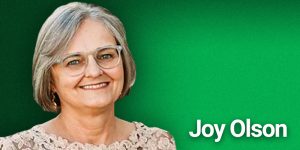 I’m working from home during the pandemic. My life has slowed down. There is a mental space that you have when you aren’t problem solving all day. You can observe, read, chat with people, and walk your dog – a lot. I keep thinking about what I should learn from this experience.
I’m working from home during the pandemic. My life has slowed down. There is a mental space that you have when you aren’t problem solving all day. You can observe, read, chat with people, and walk your dog – a lot. I keep thinking about what I should learn from this experience.
Here are two reflections:
First, the divide between hourly workers and those with salaries is so big, that it is hard for me to feel the pain of those who have lost their jobs.
I’m a consultant, without a regular paycheck, but I work this way by choice. While I sympathize with the plight of laid-off hourly workers, it’s not my current experience. I have to think back to when I was younger. Then, I did live paycheck-to-paycheck. It was stressful. It required so much mental energy and planning. You have to be really good at managing money when you are poor.
My guess is that if you are reading this, you are not a minimum wage worker. Think about this, if you made minimum wage, how would you get your family through the week? Now think about what it would be like to get laid off. That is stress. That’s what hourly workers are experiencing.
While this is a difficult situation for so many in the US, I got a call from an old friend in Honduras. She is not an hourly worker. Worse yet, she is in the “informal” sector. She and a small group of women make snacks and sell them on the street and in small local stores. Virus related restrictions prohibit her from selling, and without sales they don’t eat.
Those of us with salaries, still being paid, must not be complacent about what current stay-at-home restrictions mean for those without income.
Second, both Mexico and the US are run by men who either don’t believe in science or who simply won’t listen to scientists and medical professionals.
A big difference between life during the Spanish Flu of 1918, that killed an estimated 50 million, and COVID 19 is that we now understand how pandemics spread. With that knowledge, we have the opportunity to lessen the impact of this virus. But knowing how to control the spread and actually doing it is not the same thing.
The scientists are saying to use social distancing as much as possible to slow the spread. Both President Trump and President Lopez Obrador have resisted this message. Having access to scientific knowledge isn’t enough. Our leaders must implement policies that use this knowledge to protect the community as a whole.
Our leaders must understand that we want evidence based public health policies. At the same time, those of us with an income need to really feel the hard choices that are being made between public and economic health. Sacrifice needs to be made by all in the interest of the public good.
Lastly, let’s make an effort to see people who are in need and help them. And while we are at it, let’s start electing people who believe in science.
* Joy Olson is the former Executive Director of the Washington Office on Latin America (WOLA), a research and advocacy organization working to advance human rights. Twitter: @JoyLeeOlson


